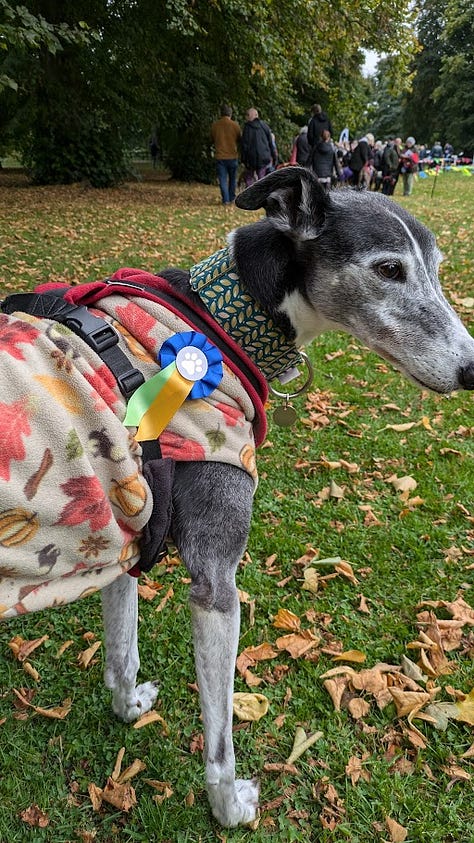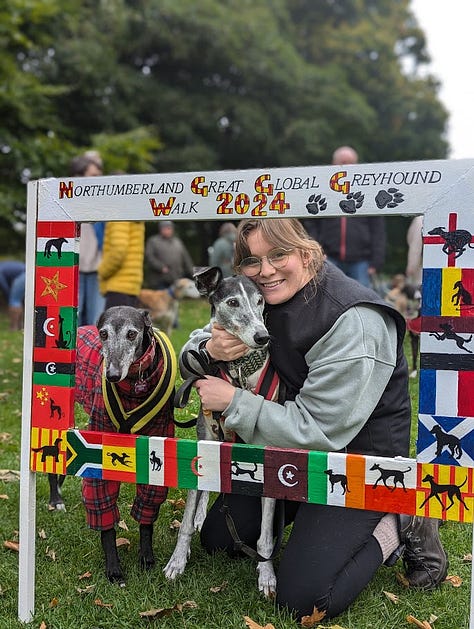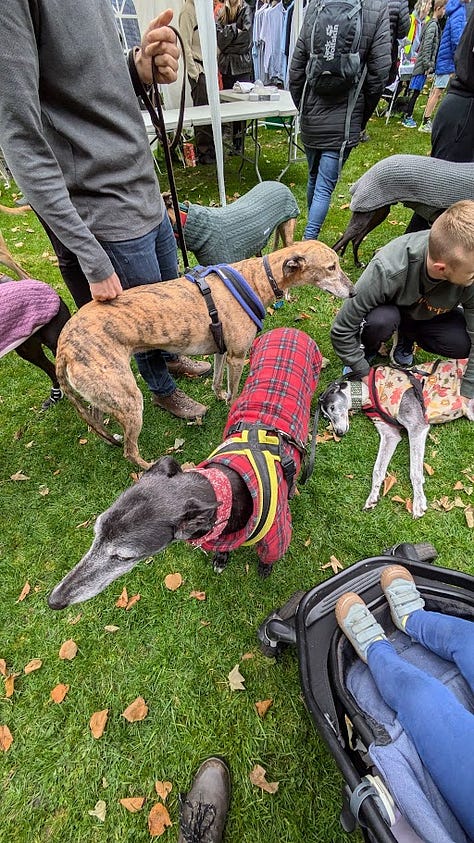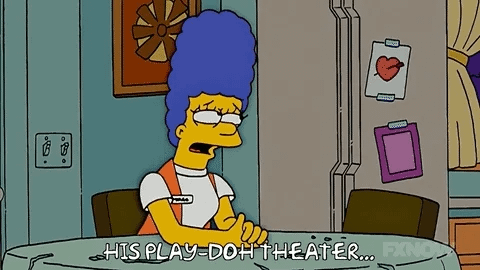There’s a trend in “mum-influencers” where they admit they find playing with their kids to be boring. In some ways, I can understand this. In fact, many aspects of parenting are extremely boring - but, to me, playing isn’t one of them. It’s probably the least boring part of being a parent.
That’s not meant as an insult to these mothers who do feel that way, they are entitled to their opinions - I would never want this to come across as a criticism of any mother. It’s more that this just hasn’t been my experience.
Through becoming a parent, I have realised that there is a time in our lives when we prioritise play. Then, one day, that just… stops? I can’t really put a specific age on when playing stops being seen as necessary for our development or happiness.
In preparation for writing this, I simply Googled: “benefits of play”, and the top results were all about “how play helps children's development.” But if play is so important to children, then why is it not only not prioritised, but typically non-existent, in the life of adult women?
In the last four years of writing this newsletter, it feels like I have covered every topic already, and this one is no different. Back in December 2021, I wrote about the public reaction to actor Henry Cavill’s unashamed passion for his nerdy hobbies.
In a world obsessed with productivity and hustle, it’s pretty awesome that one of the world’s biggest actors still makes time to paint Warhammer and play online games with his lifelong friends. If Cavill can do something just for fun, then we all can.
And to go even further back into the archive, in August 2020 I wrote about doing what you enjoy, even if you’re not very good at it.
Play-don’t
Both of these pieces touch on the topic of play. Playing is the act of doing something simply for fun, although for children we are told that this can have educational benefits. It’s funny to me that we have to add the caveat that children are learning something when they play, as the act of just playing isn’t quite enough to prove a benefit.
From the moment babies are born, parents are under pressure to create the perfect, educational environment. From black and white baby books to toys built to develop fine-motor skills, you’ll find that pretty much everything has an additional benefit or purpose.
Now my daughter is two, she decides what she wants to play with - and sometimes she loves the ABC magnet toy (educational) and other times she just wants to make poops out of Play-Doh.
This week, Craig bought her Kinetic Sand - surprisingly this didn’t trigger my sensory issues with sand, as it leaves no residue and is relatively easy to clean up. We were building little sandcastles and she was having a whale of a time. That’s when I started thinking, at what age will she stop prioritising play? And why is play not a part of our lives as adults - particularly women?
Women and play
Men are encouraged to participate in sports well into adulthood, and attending football games, for example, is a male-bonding exercise in itself. Video games are also a huge part of male life, with the industry itself having a huge (and ongoing) issue with sexism - both in the games studios and in the fandoms.
What forms of play are women encouraged - or even 'allowed’ - to do in our society? And when are we even supposed to find time for such activity. Having a child, means I can tap into my playful side through her. I would never have played with Play-Doh or Kinetic Sand past the age of ten if she didn’t come into my life.
Craig and I are also big fans of boardgames, although we often don’t have time to dig out the big ones anymore, so we typically stick to small card and other tabletop games like Radlands, Star Realms and Hive.
Putting my armchair psychologist hat on for a minute, I wanted to know whether there is really any benefit to play for adults, as I feel like many of us are missing a trick here.
This article by the British Psychological Society explores why play is not as commonplace in our lives as it is for our peers in the animal kingdom:
Play and playfulness are clearly more central to adult lives than is commonly supposed, but why are humans different to other animals in this regard? One potential answer is that as a species our strength is in our capacity to learn and adapt across the lifespan, evolving culturally as well as biologically.
I had never even thought about this - I was too busy posing the difference between children and adults to consider that human beings are, bizarrely, the only primates who seemingly ‘grow out’ of playing.
The same article lists some pretty amazing benefits to play for adults, including stress relief, enhanced learning and reduced negative emotions. But even without the scientific evidence to back up the theories, surely just the fact that it’s enjoyable is good enough reason to do it?
Not only is playing fun, but it also has no point whatsoever - and this is what I like most about it. We build different shapes with the Kinectic Sand, and there really is no end goal here. I don’t care if she doesn’t learn about physics or architecture. I am not there to learn either, I just enjoy doing something for the specific purpose of there being no purpose at all. What else in adult life can you say this about? Nothing that comes to my mind.
If you have kids, or spend time around them, do you enjoy playing with them or do you find it boring? Let me know in the comments below.



Last weekend it was one of my favourite events of the year - The Great Global Greyhound Walk, an international event held in cities across the world where greyhounds come together for a cute little walk and fundraising activities. We’ve been a part of the Northumberland Greyhound Rescue community for over five years now (we even built their website) so I love going to support the charity, and seeing all the lovely hounds at these events.
Other things I’ve also enjoyed this week:
📚Only Here, Only Now by Tom Newlands - Debut novel from this Scottish writer, this one is so heartfelt and beautifully written. It’s about a young girl growing up in lower-working class conditions with undiagnosed ADHD in the 90s. If you liked Shuggie Bain, you’ll enjoy this one.
📺Mr McMahon (Netflix) - Wild doc series about the controversial king of WWE, Vince McMahon.
See you next week,
Ellen x
🎧I’m on Spotify!
If you like the audio version of this newsletter, you can listen to them all over on Spotify. Here’s last week’s:
💌 About this email
I’m Ellen, and I write about mental health for the chronically online. I am a freelance copywriter, strategist and web designer, and I work from home with my husband, Craig, at Content By The Sea. We have two rescue greyhounds, Potter and Harmony, and a toddler.
I started this newsletter in March 2020 and have sent over 180 emails; currently, I have over 1,200 subscribers. I write about a wide variety of topics, including diet culture, my love of running, jealousy, my life falling apart, mam guilt, and this dystopian world we all live in.
💛 How you can support me
If you like reading my weekly emails, you can give me a kickback in one or more of the following ways:
📨 Share this post
📬 Subscribe for free (if you haven’t already!)
💬 Leave a comment on this newsletter
💰Sign up to be a paid supporter of the newsletter for just £4 a month or £40 a year.
The current perks of being a paid subscriber are receiving one extra Touching Grass email each month with all of my top films, shows, podcasts and books. Most importantly, you are supporting me in continuing to write this newsletter week after week.









